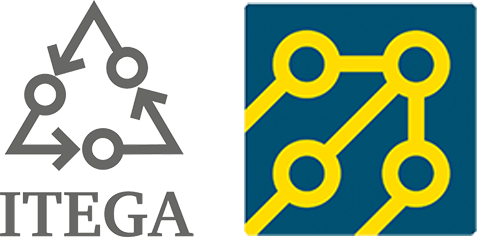
Randall Rothenberg
Veteran leader in advertising industry calls for public-private intervention to head off disjointed approach to web identity
By Bill Densmore
ITEGA.org
Separate and competitive moves by Google, Apple and multiple elements of the ad-tech industry are leading to a disjointed and uncontrolled approach to user identity and privacy — and some form of public-private intervention may be needed to help prevent fraud, a key advertising-industry leader warns.
“I think the problem with multiple localized identifiers gets us rapidly back into ‘cookie land’ — a proliferating set of uncontrolled “things” that end up, merely because of their proliferation and lack of control, being easily gamed,” says Randall Rothenberg, the executive chairman of the Interactive Advertising Bureau (IAB).
In a wide-ranging discussion with Privacy Beat this week, Rothenberg said what’s needed is a more universal solution. “You need to have some baseline set of allowances and forbiddances in the law,” he said, adding: “And ideally, some form of public institution, public-private institution, safe harboring NGO, something that ends up managing this on behalf of the public interest.”
The concept of a “safe harbor”, broached in a Brookings Institution paper last year, refers to an idea to define a nongovernmental institution as a rules setter for industry identity and privacy, with the law referencing the entity in practice if not in name, and stating that a regulator such as the Federal Trade Commission, would assume operators sanctioned or audited by the entity are in compliance with law.
Rothenberg had been the CEO of the IAB since 2007, but stepped down to a part-time role last year. He has been a tenacious advocate for free-market advertising — and journalism. He started his career as a newspaper stringer in New Jersey, free-lanced magazine articles, and authored several books and was for many years a science, technology and politics editor and business- and advertising-industry beat reporter at The New York Times before becoming IAB’s leader.
In a long and deeply reflective discussion, most of it off-the-record by agreement, Rothenberg made these points:
- There’s a risk that platforms and other ad-tech companies — many of them members of IAB — will unveil numerous competing solutions to replace the functions of the third-party cookie in programmatic advertising, which could fragment the media ecosystem and make it hard — especially for small companies — “to access it at scale.” That threatens to disenfranchise small fry and benefit the largest tech platforms and global-scale advertisers at their expense, he says.
-
Major advertisers and ad-tech companies are rapidly reaching the conclusion in private meetings that the future of identity will include giving consumers the right to “opt-in” to data tracking before it occurs. Rothenberg worries that an opt-in standard will benefit the largest incumbent brands, which already have sizable legacy audiences, and will make it harder for small entities to find new users.
- Privacy advocates appear not to perceive that the internet runs on individual identity — each user has a trackable Internet Protocol address (IP number) at base, which is seen by any web-server they visit — and the challenge becomes how that identity may be enhanced or used, and not abused. “The notion that there will be no identity anywhere is impossible within client-server architecture,” says Rothenberg. “It is tantamount to believing the U.S. Mail can be delivered without postal addresses.” He says policy decisions have to be made by someone somewhere about who has access to what forms of identity and what they are allowed and not allowed to do with that access.”
- There’s an unproductive lack of trust across the marketing-media ecosystem that makes alignment on standards and practices difficult, but surmountable. Rothenberg surmises that much of this mistrust stems from a continuing, ongoing debate about audience metrics. “In the old days, marketers and media agreed in measurement currencies, like Nielsen ratings, and agreed to share the risks of their imperfections,” he sais. “The tech platforms have been less open and less willing to collaborate with each other and teh broader marketing world on transparent, standard metrics.” Rothenberg says that legacy of mistracy and opacity slows down the identity-standards quest. “Some large platforms, like Apple, flat-out refuse to engage with the rest of the industry,” he says.
Rothenberg says if a “new private cartel” develops around identity ownership — without protection for the public good — essential advertising and marketing processes will become owned or controlled by the cartel, to the detriment of the open internet. “There’s a whole series of things that individual operating-system companies and browser companies cannot be allowed to subvert, period,” says Rothenberg. That includes, he says, not just the ability to verify delivery and measure the effectiveness of advertising, but also the ability to ban certain economically and socially detrimental activities, such as racial redlining, or other forms of discrimination in hiring, health care, insurance, mortgages and the like.
RELATED LINKS:
- ITEGA calls for support of ‘public option’ user privacy/identity ecosystem — led by journalism-aiding nonprofit
- RETURN TO PRIVACY BEAT

